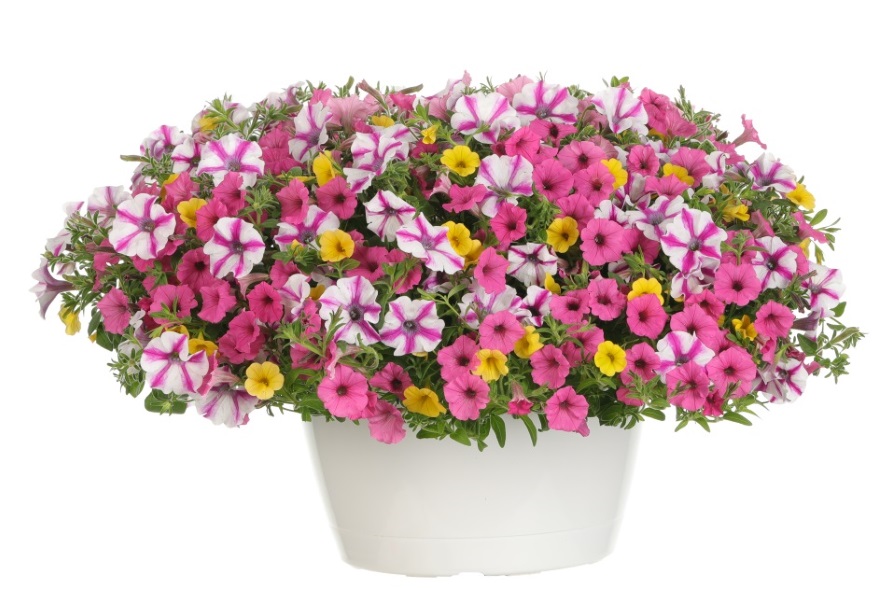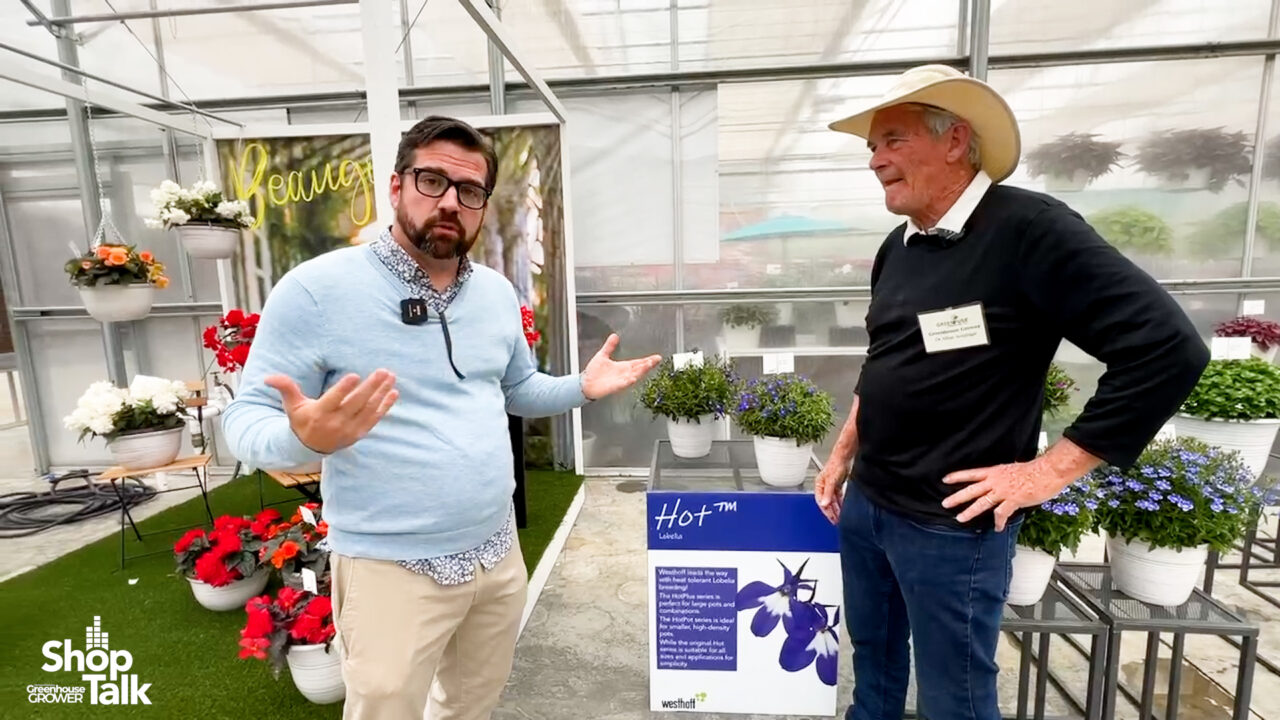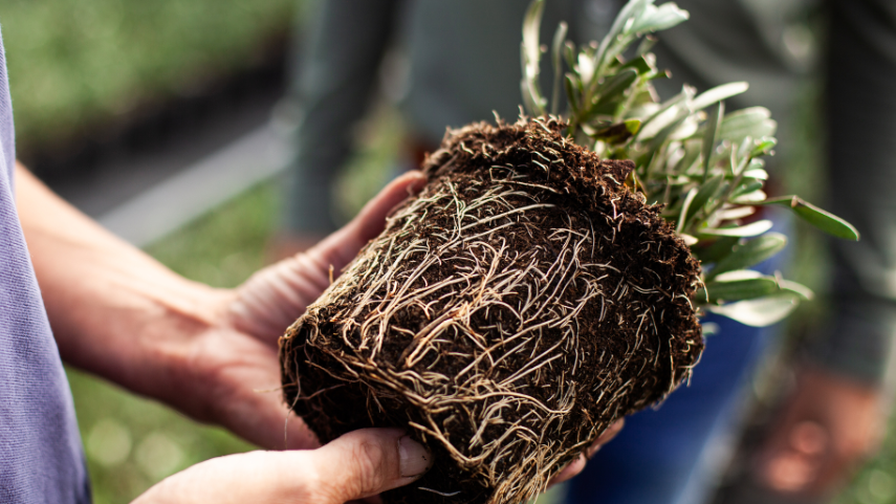Farewell, Brother
On Friday, June 23, 2006, my brother, Victor E. Carlson, died at Rosary Hill Home in Hawthorne, N.Y. at the age of 82. He was born in Kingston, Penn., on Sept. 15, 1924 and was the son of Victor E. and Marie (Jensen) Carlson.
Victor was the owner and operator of Carlson’s Greenhouse in Cold Spring, N.Y., which he and his wife founded in 1962.
He served in the Navy from 1943 to 1946 in the Pacific theater on a destroyer escort. Victor received two bronze stars for battle against the kamikaze aircraft in the war effort and his ship was the first American vessel to come into Tokyo harbor after the bombing of Hiroshima.
When Victor returned after the war, he started working with our uncle, Hugo Carlson, as an assistant gardener on estates in Westchester County, N.Y. My uncle Hugo came to the United States from Sweden and was head gardener on several estates. Victor served as his apprentice for several years and then was hired as an assistant grower at Goldfarb’s Greenhouses. After several years there, he was hired as greenhouse and grounds superintendent for Patricia Murphy’s Candlelight restaurants. The company had restaurants on Long Island and in Yonkers, N.Y., as well as in Stuart, Fla.
In 1961, Victor hired me for summer work in the greenhouse part of the Patricia Murphy operation. I learned the duties of a night watchman, helped with the watering and weeding, and substituted for growers or assistant growers when they took vacations. On vacations from Penn State, I went to New York and filled in for all the folks who took time off at Christmas, New Year’s and spring break.
In my last year at Patricia Murphy’s, I became her penthouse gardener. I took care of the gardens on the 13th floor at 95th and 5th Avenue in New York City. I even chauffeured Mrs. Murphy from JFK airport to her home in Manhattan and helped her with parties at her penthouse on many occasions.
I consider my brother Victor as one of my first mentors since he gave me the opportunity to develop both my plant and people skills. His advice and counsel helped me develop skills that helped me graduate from Penn State and get my first job after graduation.
Here are five rules he taught me:
-
Experience is the best teacher, but the tuition is too high.
Victor and I had many discussions on whether it was best to get knowledge through experience or formal education. In the end, we both agreed that one year of formal education is about equal to four years of experience. So a four-year degree is equal to 16 years of practical experience and knowledge gained. We also concluded that this is only true if the person with the formal education has at least two years of practical experience. -
Plants aren’t the problem. People are.
Victor loved plants. He had a feel for them. He could walk into a greenhouse and identify problems by sight. He could tell if plants were overwatered, dried out or damaged by pesticides. He had great empathy for them. Victor told me this was the easy part of being a horticulturist. He said if you handle 100 plants the same way, they will all respond the same way. However, he told me if you treat 100 people the same way, 40 people will respond one way, 40 will respond in the opposite way and 20 won’t respond at all. My New York experiences proved this, and my experiences at MSU provided further proof of his wisdom. -
See the big picture, but solve your problems one at a time.
Understand the complexity of a situation, but then keep it simple. I saw how Victor and his wife Jo handled the job at Patricia Murphy’s, their family, their parents, the new garden center in Cold Spring and the development of their greenhouses there. Many things happen at once. You have to be able to handle all of them, but take it step by step. -
You can’t do everything yourself.
Victor relied heavily on his wife Jo. He also took time with his employees and helped nurture them. One of his summer employees was a young lady whose first experience in horticulture was at Cold Spring. He taught her how to seed and grow begonias. She is now the president of the American Horticulture Society. Katy Moss Warner said that her experience at Cold Spring was the starting point of her career in horticulture. -
It’s not how much you make. It’s how much you do that counts.
Victor could always make a living from his profession. In his last years, his daughter Diane worked with him to make certain they could survive. While he may not have been with money, he was rich with family, friends and people he knew. He taught me that there are many ways to measure wealth. Money is not the only one.
At Victor’s funeral, I wrote part of the eulogy and I would like to share it with you. I hope you will understand what a great person he was.
I reflected on a sermon preached by the Reverend Dale S. Bringman in Grace Lutheran Church, State College, Penn., on Oct. 22, 1961.
Luke 11:26 — "To every one who has will more be given; but from him who has not, even what he has will be taken away." Victor Carlson’s brothers and sister and their spouses came to Cold Spring, N.Y. on June 29, 2006, not only to bury him, but to praise him for his good works and deeds. We praise him for the stepping stones he built for his family, his business, his community, his service club (the Lions Club), for local government service (over 20 years on the Zoning Board and Board of Appeals) and his country (3 years in the U.S. Navy in the Pacific theater).
Reflect on how Victor has helped you build a stepping stone. Take these thoughts and ideals and use them to make a contribution to others. He will be with us always in spirit. He has just moved to a new address.
I hope you will reflect on how members of your family, mentors and role models have helped you build stepping stones instead of stumbling blocks.









